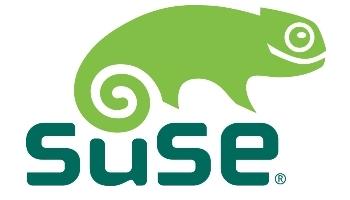Microsoft and SUSE have announced a four-year extension of the controversial interoperability deal signed nearly five years ago between Microsoft and Novell.
The agreement for broad collaboration on Windows and Linux interoperability and support will extend until the start of 2016, with Microsoft committed to investing $100 million in new SUSE Linux Enterprise certificates for customers receiving Linux support from SUSE.
Immunity from patent suits
 Over the initial five-year term of this agreement, Microsoft and SUSE built a bridge for customers between the two worlds of open-source and proprietary software, the companies said. Although the original deal was with Novell, SUSE assumed the leading role after Attachmate acquired Novell and its holdings, including the SUSE brand.
Over the initial five-year term of this agreement, Microsoft and SUSE built a bridge for customers between the two worlds of open-source and proprietary software, the companies said. Although the original deal was with Novell, SUSE assumed the leading role after Attachmate acquired Novell and its holdings, including the SUSE brand.
“Our collaboration with SUSE not only helps customers to achieve success today, but also seeks to provide them with a solid foundation for tomorrow,” Sandy Gupta, general manager of the Open Solutions Group at Microsoft, said in a statement. “Through our continued engagement on the technical side, an outstanding support offering from SUSE and our ability to provide mutual IP assurance, we feel confident that we will be able to deliver core value to those running mixed-source IT environments well into the future—and into the cloud.”
In a blog post on the renewal, entitled “Microsoft-SUSE 2.0,” Gupta said he has “met directly with an impressive number of IT executives around the world over the past 12 months who have spoken highly of the solutions we have delivered jointly with SUSE to their organizations which address priority problems—whether it be different workloads such as HPC, solutions for virtualization, and/or management within a heterogeneous data center environment.”
“We’re pleased to extend our long-term relationship with Microsoft,” said Michael Miller, vice president of global alliances and marketing at SUSE, also in a statement. “Our mutual commitment to help organizations make the most of mixed Linux and Windows Server environments is what has made this collaboration successful. We will continue to work with Microsoft to deliver solutions that enable our joint customers to manage critical workloads in mixed-source environments across a wide range of computing models, including private, hybrid and full-cloud implementations.”
Microsoft and SUSE also will continue their technical collaboration on solutions to help customers work more efficiently in the areas of cloud, virtualisation and manageability, the companies said. One such example is through the combination of a cross-platform solution with Microsoft Hyper-V Cloud and SUSE Linux Enterprise Server, giving IT managers a solution to migrate to a private cloud architecture. The companies also plan to extend Microsoft System Center through integration with SUSE Manager and select technologies to enhance Linux deployment, patching and updating.
Moreover, the joint Microsoft-SUSE collaboration has served more than 725 customers around the world across a range of industries, such as manufacturing, oil and gas, health care, and financial services. Recent additions include Aeropuertos Espanoles y Navegacion Aerea, ALSTOM IT Shared Service Centres, Celesio, Colt Technology Services Group, Coop Danmark A/S, FagorBrandt SAS, LIBRO Handelsgesellschaft, Nationale Suisse, Swiss Re and Wincor Nixdorf International. In addition, through this alliance, SUSE enables customers to consolidate their Linux support by offering subscription support for SUSE Linux Enterprise Server, Red Hat Enterprise Linux and community Linux distributions such as CentOS.
“As one of the largest banking corporations in Spain, we offer our clients a broad portfolio of financial products and services,” Fernando Martinez, infrastructure manager at BBVA Bank, said in a statement. “In an operational environment this dynamic and stratified, the personnel, teamwork, ethical principles and technology define the backbone of our business. We rely on the SUSE Expanded Support Program to migrate part of our IT operations to SUSE Linux Enterprise Server, as it supports our objectives for greater interoperability for our Windows and Linux systems.”
Meanwhile, Microsoft and SUSE have also driven significant opportunities for partners that have leveraged the companies’ collaboration as a means of meeting their own customers’ demand for interoperability. Companies such as Dell have been both a customer and reseller of Microsoft and SUSE solutions. In addition, SHI International, a US-based reseller of software, hardware and services, and Adaptive Computing Enterprises, a workload management ISV (independent software vendor) serving the high-performance computing sector, have helped their own customers realize benefits from the joint solutions resulting from the collaboration. Select international partners include ALSANET, Bechtle, Comparex AT, ErmesTel, Kelway, Liga Distribution ApS, NEXPERT, SCC, Securelinx, Softcat, Stover AS, Trustmarque Solutions and 2e2.
“The Microsoft-SUSE expanded support program has helped a number of our customers standardize on SUSE as an optimized guest on Hyper-V, as well as provide a highly cost-effective support program for non-SUSE distributions, including Red Hat,” said James Largotta, global vice president of sales for BridgeWays, an ISV that develops management packs to extend the cross-platform capabilities of Microsoft System Center. “Because of this, we find the interoperability partnership between Microsoft and SUSE to be highly complementary to the work we do, especially with the emergence of the private cloud.”
“The fact that we have interoperability in the industry today is a big step compared to the old days,” said Professor Ulrich Trottenberg, director of the Fraunhofer Institute for Algorithms and Scientific Computing (or SCAI), in a statement. “For Fraunhofer SCAI, this is critical because we have so many different technologies that we must work with to meet the needs of our customers and to support our own research. We are pleased to see that Microsoft and SUSE are proactively exploring ways to improve platform interoperability. This is so important since both vendors are also resolving intellectual property concerns, which drives greater choice and flexibility for their customers.”





